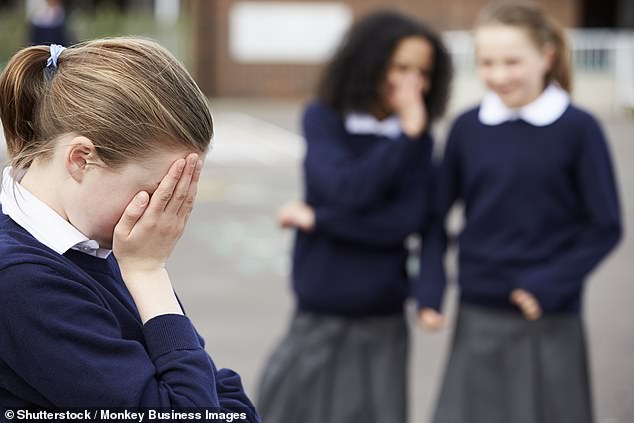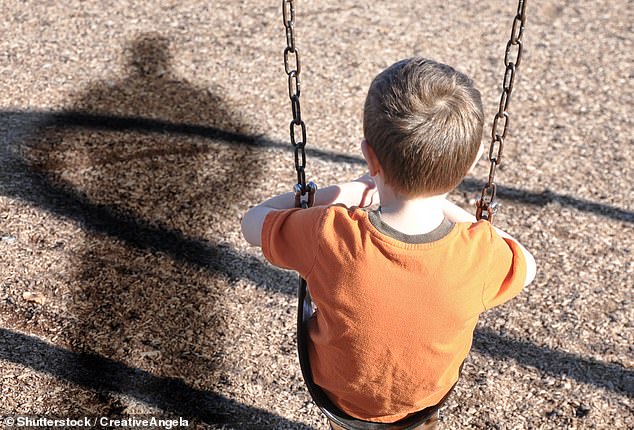- Research shows behavioral problems were associated with higher income
<!–
<!–
<!– <!–
<!–
<!–
<!–
While one might expect playground bullies to continue leading sad and lonely lives, the opposite appears to be the case.
Research suggests that children who were aggressive in school tended to pursue high-level, well-paying careers, while those considered more socially awkward or emotionally fragile earned less.
The University of Essex finding is based on the results of a study of almost 7,000 people born in 1970 whose lives have been followed by the British Cohort Study.
The researchers examined data from elementary school teachers who assessed children’s social and emotional skills when they were ten years old in 1980 and compared it to their lives at age 46 in 2016.
Report author Professor Emilia Del Bono said: “We were surprised to find a strong link between aggressive behavior at school and higher earnings in old age.”

Research suggests that children who were aggressive in school tended to pursue high-level, well-paying careers (File Image)


Children considered more socially awkward or emotionally fragile earned less, research shows (File Image)
“It is possible that our classrooms are competitive places and that children adapt to win that competition with aggression and then carry it into the workplace, where they continue to compete aggressively for the highest-paying jobs.”
He warned parents that they should not accept the message that bullying is good and that the findings highlight the need to help children who become victims on the playground to ensure they reach their potential.
“I guess (it means) encouraging your child to stand his ground, rather than being aggressive,” he said.
The research team found that behavioral problems in children, such as angry outbursts, bullying, or teasing others, were associated with an increase in income of almost 4 percent in 2016.
This compares with a 6 percent higher salary for those with higher cognitive skills and who performed better on school tests.
Those who were considered to have attention problems, such as not completing tasks, and emotional problems (such as being worried, anxious or restless) earned less.
Other tests showed that, at age 16, children who had behavioral problems were more sociable as teenagers.
However, they were also more likely to have smoked and been arrested.

